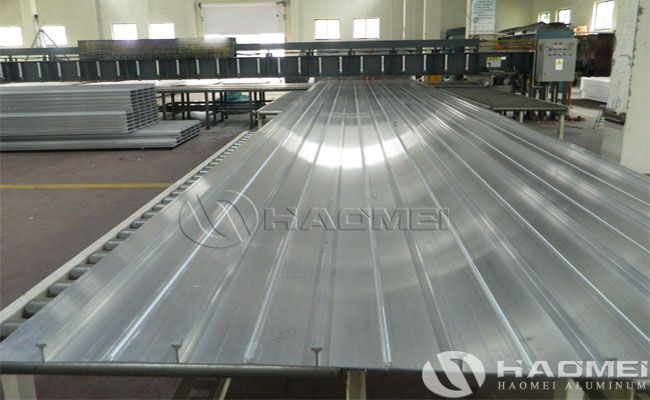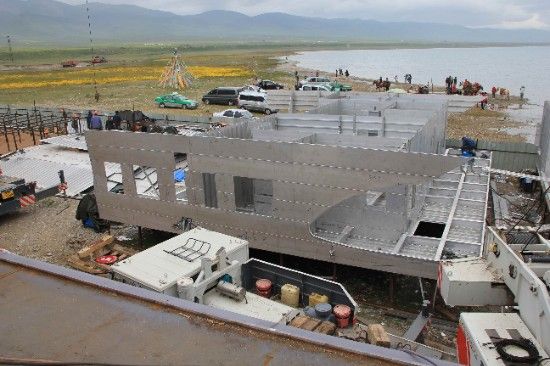Friction Stir Welded Aluminium Panels For Shipbuilding
Friction stir welding (FSW) technology offers significant advantages for shipbuilding aluminum plates, including high weld quality, minimal deformation and wide applicability. Friction stir welded aluminium panels for shipbuilding has been widely applied in applications such as refrigerated container walls, honeycomb structural panels, and high-speed ferry decks, becoming a dominant process in aluminum shipbuilding industry.

Friction stir welding is a solid state welding technology that uses the frictional heat between a rotating tool and the workpiece to heat the material to a ductile state, achieving a connection under the propulsive force of rotation. Its core advantages include:
- High weld quality:
Weld strength can reach over 90% of the base material, providing forged-grade structural integrity and avoiding defects such as porosity and inclusions found in traditional fusion welding.
- Excellent deformation control:
Low heat input, narrow heat-affected zone, and minimal welding deformation perfectly meet the manufacturing requirements of high-precision ship structural components.
- Wide applicability:
It can weld aluminum alloy plates with single-sided thicknesses of 1.2-50mm and double-sided thicknesses up to 100mm, overcoming the limitations of traditional friction welding on simple cross-sections.
- Cost and efficiency balance:
No filler material or shielding gas required, no pretreatment needed, short welding time, low overall cost and high efficiency.
Specifications of friction stir welding panels for shipbuilding:
Thickness 3~8mm, width 250~600mm, standard widths: 250mm, 275mm, 380mm, 600mm. Rib height 150mm, length extendable to 32m.
Process characteristics: Employs single-sided cantilever beam friction stir welding equipment, equipped with penetration control and stress deformation control technology, achieving highly reliable welding.
Applications of friction stir welded aluminium panels in shipbuilding:
- Refrigerated container wall panels:
Hollow aluminum sheets used for low-temperature refrigeration in fishing vessels are extruded using FSW (Frost Stir Welding), resulting in minimal deformation and high repeatability, making it a key process in producing these wall panels. For example, Norwegian and Japanese shipbuilding companies have widely adopted FSW in manufacturing refrigerated container wall panels, significantly improving structural strength and sealing.
- Honeycomb structure panels and corrosion-resistant panels:
Japan applies FSW to the welding of honeycomb structure panels and seawater waterproof panels. Taking five 250mm wide 5000 series extruded aluminum profiles as an example, after FSW (Freeform Stir Welding), a 1250mm × 5000mm sheet is formed. The welded structure is smooth and has excellent mechanical properties, allowing it to be directly used in ship cabin hull panels, extending the ship's service life.
- High speed ferry deck and hull structure:
Wide aluminum alloy plates for high-speed ferries are manufactured using FSW welding, resulting in low heat input, minimal deformation, and effectively reduced thermal stress. For example, a European shipyard used FSW welding to weld ferry decks, increasing welding efficiency by 30% while meeting the International Maritime Organization's requirements for lightweight ships.
- Military ship superstructure:
FSW technology is gradually being transferred to military ships for the manufacture of aluminum alloy components for missile boats, rescue boats, etc. By connecting small profiles into large pre-formed panels using FSW, lightweight ship structures and streamlined production are achieved, reducing manufacturing costs and shortening the cycle time.

The advantage of friction stir welding lies in its ability to achieve high-strength connections and a small heat-affected zone during the welding process, thus maintaining the excellent properties of the materials. Aluminum alloys exhibit good weldability and mechanical properties in friction stir welding, which can meet the requirements for strength, weight and corrosion resistance in shipbuilding.








